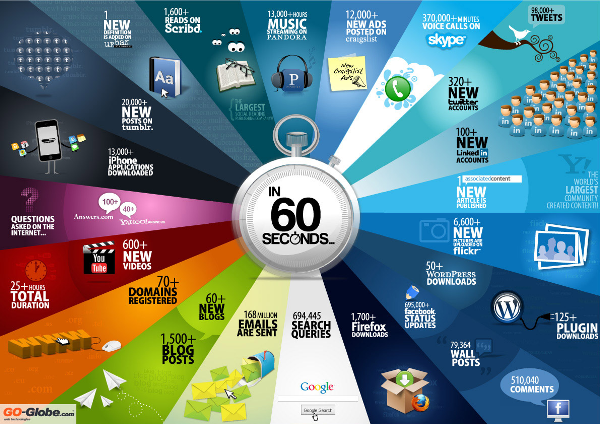Read part 1 of this post here.
One part of the infobesity problem is the various silos of information we consume: email, Facebook, Twitter, instant messaging, LinkedIn, voice mail, video conferencing and presence are typically siloed in distinct applications. Bringing many of these together into one environment – e.g. Microsoft Lync – will undoubtedly reduce the time needed to administer our information consumption. On an enterprise-wide scale, unified communications and collaboration will ease part of the problem.
But it doesn’t tackle the cause of the problem. We create too much content and fire it off indiscriminately: CC’ing, tweeting our lunch, Instagraming our holiday snaps, careless use of the company intranet. Some of this we ignore, some we can’t, but every time we have to decide whether it is relevant or rubbish, we get distracted and it consumes time.
One thing that could help a little is to follow the UK Government Digital Service’s policy of Publish, Don’t Send. This means that publishing essential information to web site or collaboration site is better than siloing key information in an inbox, and as well as being more open, this can prevent much of the emails we receive (CC, BCC, Fwd, RE).
Unified communications can reduce the time needed to consumer (and generate) different formats of information; taking a responsible attitude to the information we generate and publish will also help your colleagues, saving them time from opening and deleting; and we will continue to evolve our own strategies for coping with the ingress of information.
But we’re going to need a little more than that. I believe it will be in the form of an intelligent digital assistant which will help separate the signal from the noise. Call it Son of Siri.
Assistants like Siri will evolve rapidly, benefiting from further improvements in bandwidth, storage, processing and machine learning. Better speech and context recognition is only part of it: what will make digital assistants indispensible will be the ability to sift through all of your information streams, history, work relationships, location and status. Combine all this, and then provide me with the information I need, information I may be interested in, information to consume another time, and the information I really can ignore.
If Son of Siri can slim down my information diet, it will hopefully lead to less distraction and more creative thinking. That’s if my brain hasn’t already been permanently changed.

Stewart
top image © okalinichenko - Fotolia.com

I've been writing about technology for nearly 20 years, including editing industry magazines Connect and Communications International. In 2002 I co-founded Futurity Media with Anthony Plewes. My focus in Futurity Media is in emerging technologies, social media and future gazing. As a graduate of philosophy & science, I have studied futurology & foresight to the post-grad level.